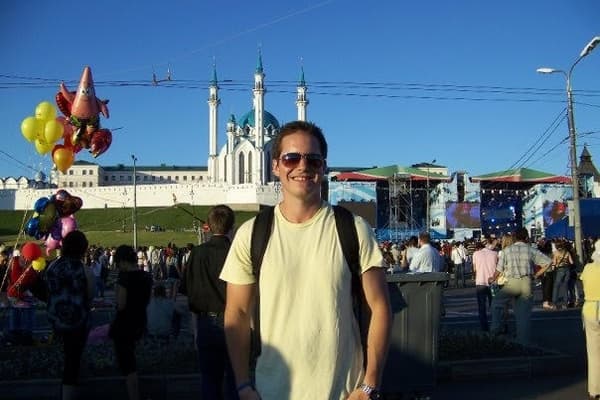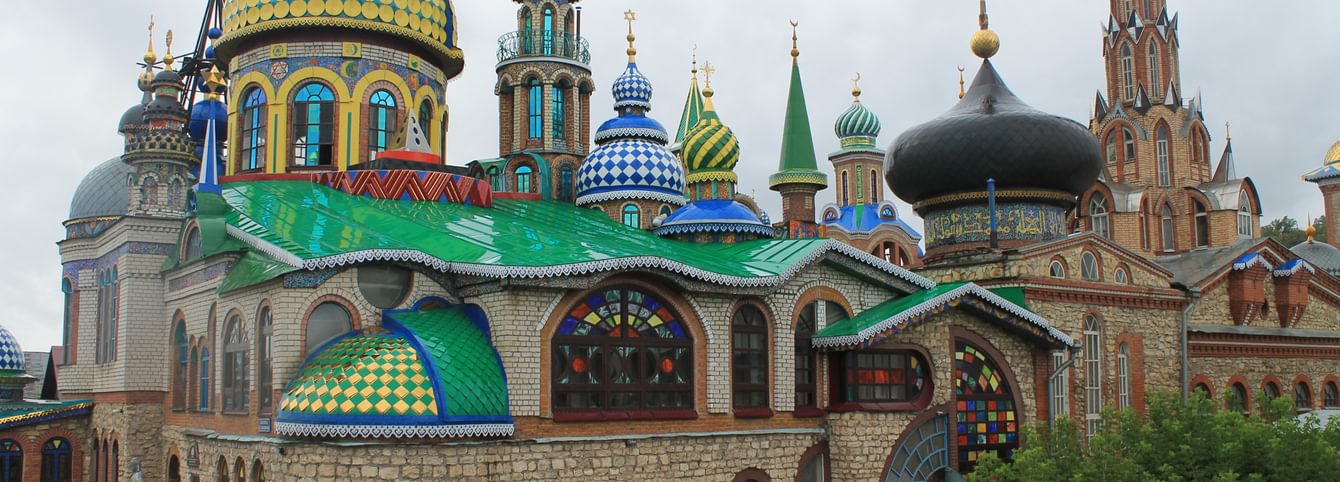What does computer science and Russian language have in common? A whole lot—just ask Samuel Hotop, CLS Refresh participant (KORA Russian Language Center) and 2009 CLS Russian alumnus. Since participating in CLS in 2009 in Kazan, Russia, Samuel has created a career that merges his passion for technology and language. Samuel’s goal for CLS Refresh is to improve his Russian computer technology vocabulary to better identify and understand cybersecurity threats. Communications Officer, Rori DiFiore recently connected with Samuel on the intersection of Russian language and technology, and his goals for CLS Refresh and beyond.
What has been your favorite part of participating in CLS Refresh so far?
Spending time discussing cybersecurity topics with my teacher Nadezhda Ivanovna. She has been delightful to work with. We're not even halfway through the program and I have already learned so much. We've discussed a range of topics including the various motivations of hackers, strategies for online safety, and details of specific cyber-attacks like Stuxnet and other more recent breaches. We've watched interviews with the Head of Information Security at Moscow's Sheremetyevo airport and discussed the changing cyber landscape and its implications for the future. Our discussions have enabled me to build a richer Russian vocabulary on these topics, which are directly related to my work in information security.
How has your motivation for studying your target language evolved since your CLS Program?
My motivation continues to increase. After finishing my graduate degree, I felt I had a strong foundation in Russian grammar, but still was not as confident in my ability to converse freely on a range of topics, especially in a professional setting. So, for nearly five years I have been taking lessons weekly. These lessons are focused less on grammar and more on simply speaking Russian. CLS Refresh has really ramped this up. I'm currently doing three hours a week of speaking practice and I intend to continue at that pace after the program ends. I see Russian language as a lifelong investment. I have also begun the process of teaching my young children Russian. My 6-year-old knows the Russian alphabet and has progressed to the second workbook in a series called Russian Step by Step for Children by Natasha Alexandrova. Russian has already opened many doors for me in my life. With CLS Refresh, I'm starting to see the intersections of my life's passions, in this case technology and language. I'm intrigued and excited about what the future may hold.

Samuel on CLS Program in Kazan, Russian in 2009.
Tell us about a particularly exciting or “Aha!” moment in your language learning journey.
The most important "Aha!" moment I've had was realizing that I needed to speak a lot more. Russian grammar is deep and complex, and I think it's possible to get mired in it, never really achieving the ultimate goal of conversing with and, perhaps most importantly, creating relationships with other people. I think language acquisition is easier when it is in person and situational and there is emotion tied to those situations. It is hard to get that from a book. The big secret I’ve learned is that by speaking a lot, you get the grammar implicitly. That is not to say that the specific study of grammar is not important. The two complement each other. At this point in my journey though, I'm all about conversation, mistakes and all.
What is one experience (personal or professional) you would not have had if it weren’t for studying Russian?
In addition to creating opportunities to make close Russian friends, to work and study in Russia and to absorb many aspects of Russian culture, learning Russian has prepared me to study computer languages and to learn to program, which has become an essential part of my career. When programming computers, we encounter many of the same topics we do when studying the linguistic nature of a human language i.e., syntax, semantics, etc. While they are of course different in application, the study of Russian prepared me well to deal with the demanding and detailed analysis required in computer programming.


